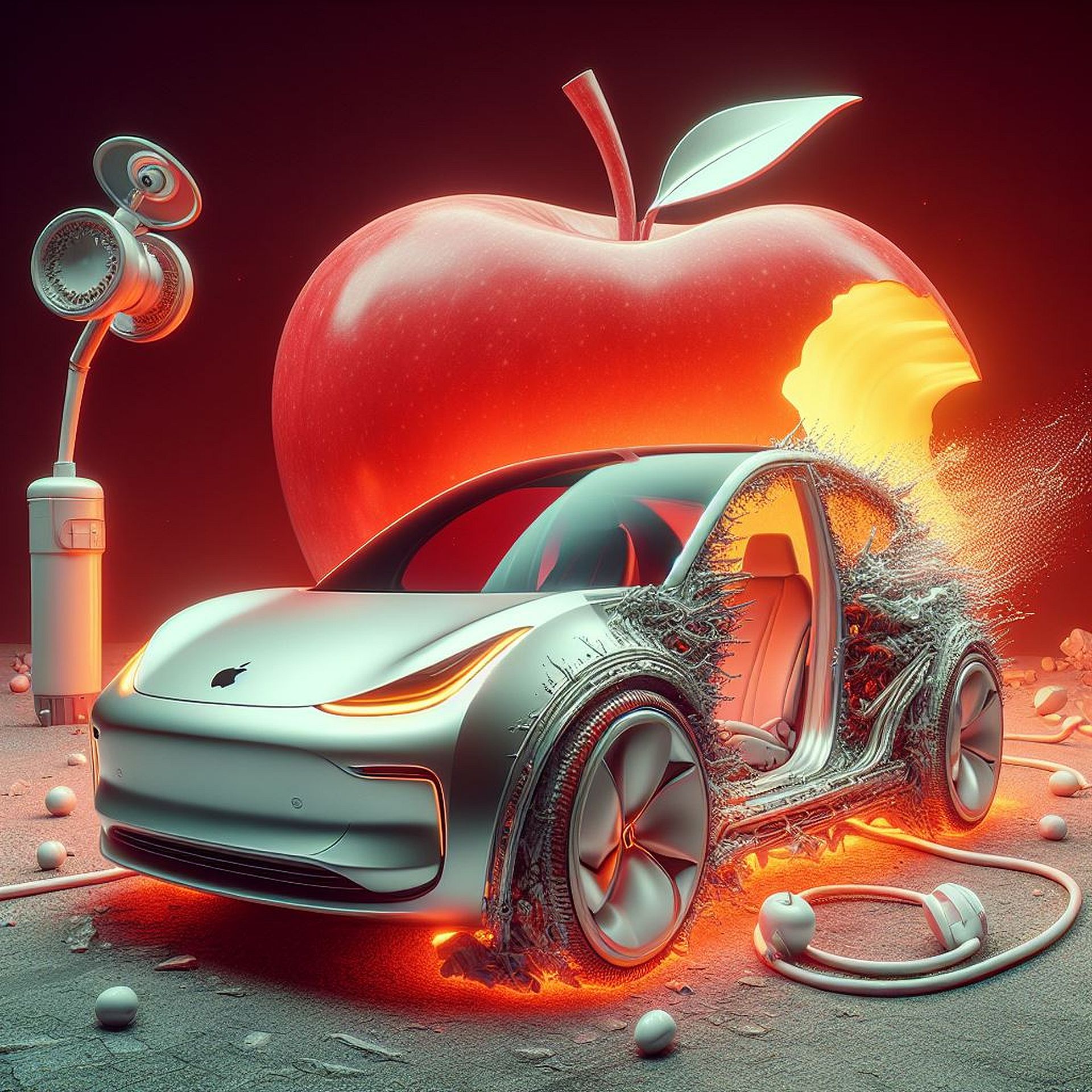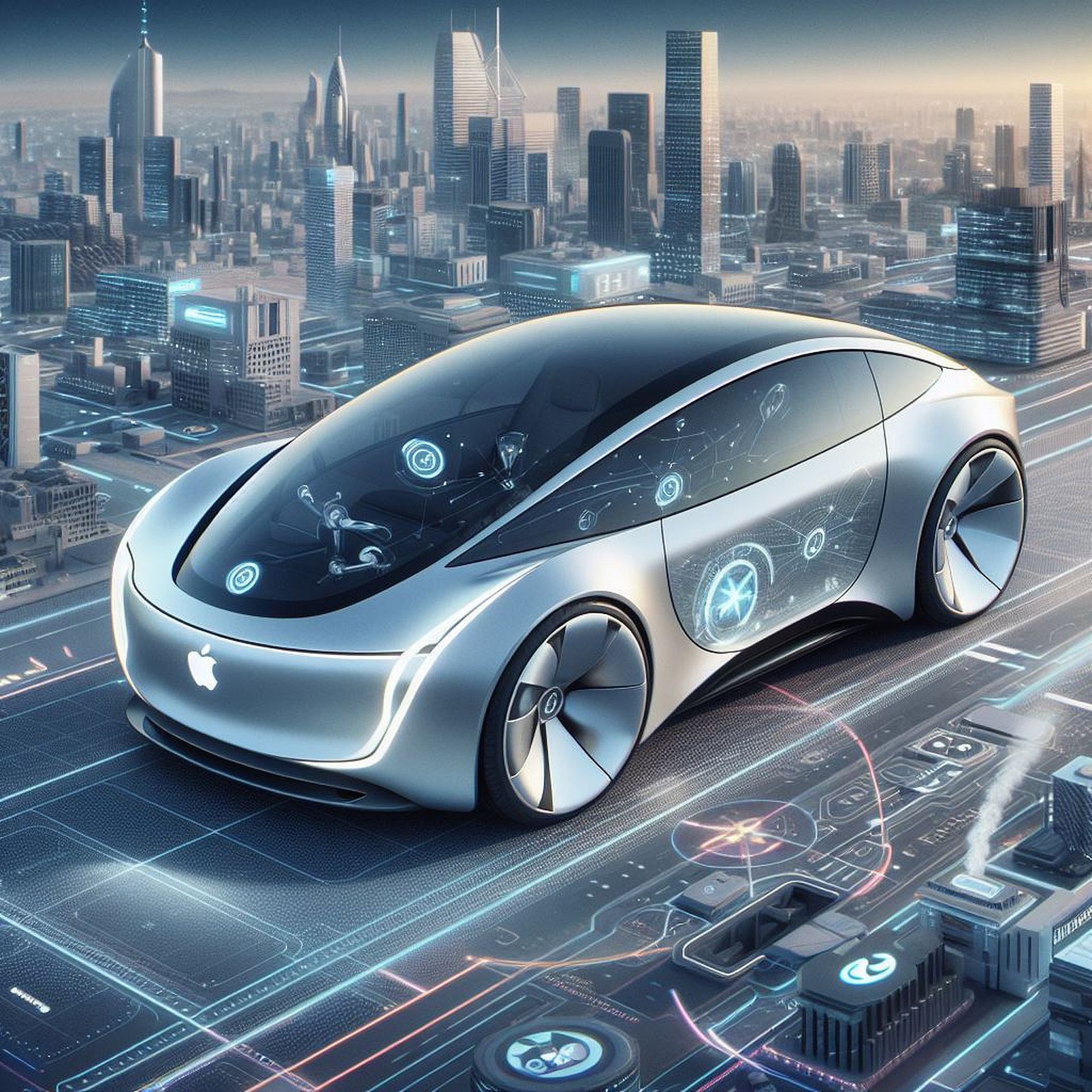Apple’s plan to make electric cars (Project Titan) has been canceled, and AI played a big part in it. But why did this happen? From tough challenges to changes in the car market, let’s uncover how AI became a game-changer in Apple’s car journey.
Why is the Apple electric car project canceled?
The cancellation of Apple’s electric car project, known internally as Project Titan, can be attributed to a combination of factors that have collectively led the tech giant to shift its focus away from the automotive industry and towards other areas of innovation, particularly artificial intelligence (AI). Several key reasons led to the Apple electric car project canceled, and here are some of them:
- Uneven progress and challenges: Throughout its lifespan, Project Titan faced numerous challenges and setbacks, leading to inconsistent progress. Despite initial enthusiasm, the project encountered difficulties in areas such as technology development, manufacturing, and market readiness. These challenges likely raised concerns within Apple about the feasibility and viability of the electric car endeavor.

- Changing market dynamics: The automotive industry, particularly the electric vehicle (EV) segment, has undergone significant shifts in recent years. While there was once considerable optimism surrounding EVs, demand has since experienced a notable decline. This shift in market dynamics, coupled with uncertainties surrounding EV adoption rates and infrastructure, likely influenced Apple’s decision to reassess its involvement in the sector.
- Competitive landscape: Competing in the automotive industry is notoriously challenging, with established players possessing extensive experience, resources, and infrastructure. Apple, despite its expertise in consumer electronics, faced formidable competition from traditional automakers and EV pioneers like Tesla. The competitive landscape may have posed significant barriers to entry and raised doubts about Apple’s ability to achieve success in the automotive market.
- Strategic reprioritization: As technology evolves, companies must continually reassess their strategic priorities to remain competitive and capitalize on emerging opportunities. With the cancellation of Project Titan, Apple appears to be realigning its focus towards areas with greater growth potential, such as AI. By reallocating resources from the electric car project to its AI division, Apple aims to strengthen its position in a rapidly evolving technological landscape and capitalize on the transformative potential of AI-driven innovations.
- Market conditions and financial considerations: Economic factors, including fluctuations in demand, market volatility, and cost considerations, likely factored into Apple’s decision-making process. The decision to cancel the electric car project may have been influenced by a pragmatic assessment of market conditions and financial considerations, including the potential return on investment and allocation of resources to more promising ventures.

Overall, the cancellation of Apple’s electric car project reflects a strategic shift in the company’s approach to innovation and investment as it seeks to adapt to changing market dynamics and position itself for future growth opportunities. While the decision may disappoint some enthusiasts and industry observers, it underscores Apple’s commitment to pursuing initiatives that align with its long-term strategic objectives and have the potential to drive sustained value creation.
If you’re not exploring AI at work, you’re giving your competitors a head start
RIP, Project Titan
Project Titan was the codename for Apple’s ambitious venture into the automotive industry, specifically its efforts to develop an electric car. It was an internal project within Apple aimed at creating a vehicle that would utilize electric propulsion technology, potentially rivaling existing electric car manufacturers like Tesla. The project began around 2014 and garnered significant attention and speculation from both the tech and automotive industries. However, after several years of development and amid various challenges, Apple ultimately decided to cancel the project in favor of focusing on other areas, such as artificial intelligence (AI).
Image credits: Eray Eliaçık/Bing





